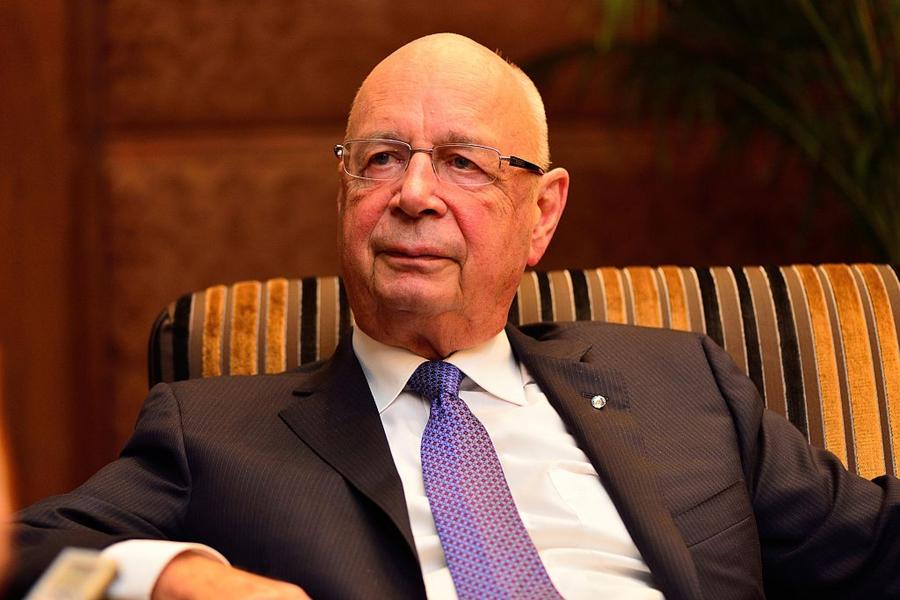[ad_1]
What is Klaus Schwab’s net worth and salary?
Klaus Schwab is a German economist, engineer, and businessman who has a net worth of $20 million. Klaus Schwab is the founder and executive chairman of the World Economic Forum (WEF).
After earning doctorates in both engineering and economics, he founded the European Management Forum in 1971, which was later renamed the World Economic Forum in 1987. Under his leadership, the WEF has grown into one of the world’s most influential platforms for global, regional, and industry agendas. He has authored several books on the global economy and is particularly known for popularizing the concept of the “Fourth Industrial Revolution,” which describes the fusion of technologies blurring the lines between physical, digital, and biological spheres. Throughout his career, he has been both praised for fostering international dialogue and criticized for creating an elite global network with limited accountability.
Early Life and Education
Klaus Martin Schwab was born on March 30, 1938, in Ravensburg, Germany, to a family with Swiss connections. His father, Eugen Wilhelm Schwab, was a mechanical engineer and business manager. His educational background is extensive, reflecting his interest in both technology and economics. He earned a Doctorate in Engineering from the Swiss Federal Institute of Technology in Zurich in 1966, followed by a Doctorate in Economics from the University of Fribourg in 1967. Additionally, he completed a Master of Public Administration degree at Harvard University’s John F. Kennedy School of Government.
Before founding the WEF, Schwab held several academic and business positions. He worked as a professor of business policy at the University of Geneva from 1972 to 2003, where he developed his ideas about stakeholder capitalism – the notion that companies should serve all stakeholders, not just shareholders.
The World Economic Forum
In 1971, Schwab founded the European Management Forum, initially focusing on helping European businesses catch up with American management practices. Over time, this evolved into the World Economic Forum, with a broader mission of “improving the state of the world” through public-private cooperation.
The WEF’s annual meeting in Davos, Switzerland, has become a high-profile gathering of global leaders, bringing together heads of state, CEOs, and influential figures from civil society. Under Schwab’s leadership, the WEF has expanded its activities to include regional meetings, research initiatives, and policy development networks.
Schwab’s approach to global governance has centered on what he calls “stakeholder capitalism” and, more recently, on the concept of the “Great Reset” – a proposal for rebuilding economies in the wake of the COVID-19 pandemic with sustainability and equity as core principles.
WEF Salary & Compensation
As the Executive Chairman of the World Economic Forum, Schwab has received substantial compensation for his leadership role. During the 1990s, his annual salary was roughly CHF 350,000–400,000 (about $400,000), as it was informally tied to the pay of the United Nations’ Secretary-General. This linkage was meant to project an image of restraint and public-service parity. In subsequent decades, however, Schwab’s WEF pay increased significantly. In recent years, his salary has been about ₣1 million per year (approximately $1.1–1.2 million USD). The WEF’s U.S. affiliate reports executive pay in IRS filings; the 2022 Form 990 listed Schwab’s total compensation as about $1.05 million for that year. Over a 50+ year career at WEF, Schwab’s cumulative salary earnings alone likely amount to tens of millions of dollars (e.g., on the order of $30–40 million gross over decades, before taxes and expenses).
Aside from salary, Schwab’s benefits and expenses have occasionally drawn attention. The WEF covers many of Schwab’s travel and hospitality costs as its figurehead. For instance, Forum budgets have paid for first-class travel, security, and event hosting at Schwab’s residence as part of his role.

(Photo by Priyanka Parashar/Mint via Getty Images)
Business Ventures and Financial Dealings
Although Klaus Schwab led the World Economic Forum (WEF) as a nonprofit, he engaged in several for-profit business ventures that leveraged the Forum’s resources and influence. In the mid-1990s, Schwab directed his nephew, Hans Schwab, to co-found a company called Global Events Management, which received a multi-million-dollar contract to run WEF’s conferences. The Forum provided nearly half the startup capital, effectively creating a private business reliant on WEF funds. Schwab later sold this company to Publicis Groupe for 6 million Swiss francs but reportedly reneged on an informal promise to share 5% of the proceeds with his nephew, citing optics.
Schwab also directed the WEF to invest $5 million in a tech startup called Advanced Video Communications, which his nephew managed. When the startup was acquired by USWeb Corp in a stock deal worth $16–20 million, Schwab personally gained a board seat and stock options worth up to $500,000. Just before the deal closed, Schwab transferred WEF’s stake into a private foundation he controlled—the Schwab Foundation for Social Entrepreneurship—ensuring the proceeds stayed under his influence.
The Forum has also made substantial property investments, spending nearly $80 million to purchase land in the Geneva area, including parcels that connected Schwab’s private residence to the Forum headquarters.
Published Works and Influence
Schwab has authored and co-authored several influential books, including “The Fourth Industrial Revolution” (2016), which brought mainstream attention to the concept of technological convergence and its implications for society. His other works include “Shaping the Future of the Fourth Industrial Revolution” (2018) and “COVID-19: The Great Reset” (2020), co-authored with Thierry Malleret.
His ideas about stakeholder capitalism, the Fourth Industrial Revolution, and the Great Reset have had considerable influence on global economic and policy discussions, though they have also attracted criticism from various political perspectives.
Recent Controversy and Resignation
In April 2025, Klaus Schwab came under renewed scrutiny following a whistleblower letter that prompted the World Economic Forum (WEF) to launch an independent investigation into allegations of financial and ethical misconduct. The anonymous letter, reportedly written by current and former WEF employees, accused Schwab and his wife, Hilde, of improperly mixing personal expenses with Forum resources. Among the claims were that Schwab asked junior employees to withdraw thousands of dollars in cash for him, billed private hotel massages to the Forum (which his spokesman says he reimbursed), and that Hilde scheduled superficial, Forum-funded meetings to justify luxury travel.
A key focus of the complaint is Villa Mundi, a lakefront property near the WEF headquarters in Geneva. The Forum spent an estimated $30 million to purchase and $20 million to renovate the villa, which now serves as a conference center. However, the letter alleges that Hilde Schwab exerts private control over parts of the property and that it is, at times, reserved for family use. The Schwabs deny any improper use and describe the villa as a model of sustainable architecture.
As tensions rose between Schwab and the Forum’s board, whose members include global leaders like Al Gore and corporate CEOs, he opted to resign immediately, cutting short a previously announced transition through 2027. In a gesture of goodwill, Schwab forfeited a CHF 5 million pension (approximately $5.5 million). Though the allegations remain unproven, this development adds to the narrative that Schwab personally benefited from blurred lines between the nonprofit and his private life, raising further questions about the full extent of his wealth and influence.
Leadership Style and Personality
Schwab is known for his distinctive speaking style—forceful and slow, with a thick German accent—and has been described as an adour economist with a ramrod-straight posture. Throughout his leadership of the WEF, he has displayed a complex personality combining entrepreneurial vision with demanding behavior.
Former colleagues have described him as having “an incredible knack to smell the next fad” and the ability to transform the WEF from a policy conference into a prestigious global platform. However, his leadership style has also been characterized as imperious—he reportedly travels with entourages, demands privileges similar to those of visiting heads of state, and has been known to react strongly to perceived slights or challenges to his authority.
Despite occasional criticism for apparent contradictions between the values he champions—such as inclusion, equity, and transparency—and the compromises made to attract wealthy and influential participants, Schwab has successfully positioned the WEF as an essential gathering for global elites.
Personal Life
Schwab is married to Hilde Schwab, with whom he co-founded the Schwab Foundation for Social Entrepreneurship in 1998. The couple has two children.
Schwab holds both German and Swiss citizenship and is fluent in multiple languages, including German, English, and French. He maintains residences in Switzerland, where the WEF is headquartered. Despite his global prominence, he has kept many details of his personal life away from public scrutiny, preferring to focus attention on the work of the WEF and his ideas for global cooperation.
All net worths are calculated using data drawn from public sources. When provided, we also incorporate private tips and feedback received from the celebrities or their representatives. While we work diligently to ensure that our numbers are as accurate as possible, unless otherwise indicated they are only estimates. We welcome all corrections and feedback using the button below.
[ad_2]
Source link






